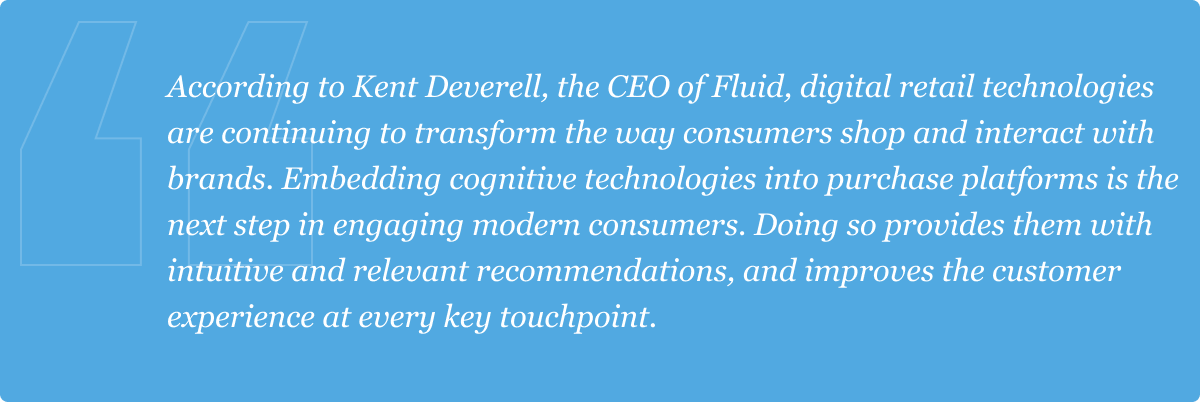The development of artificial intelligence, or AI, has made it possible to transform every business globally.
Services like AI strategy consulting, along with developing a proprietary artificial intelligence strategy, can enable businesses to offer smarter, more targeted products and services. Plus, it allows them to optimize their business processes, make better decisions, and achieve ongoing success in their land-based and digital ventures.
According to thought leader and futurist Bernard Marr, organizations that don’t capitalize on the revolutionary powers of AI risk getting left behind. Not just in their industries, sectors, but in the global market at large. This is why you need to develop a robust artificial intelligence strategy for your business, even if you already have a data strategy in place.
But what is an artificial intelligence strategy? How do you develop an AI strategy? What is AI implementation, and how do you build intelligence step by step?
Here’s how you can use an AI strategy to transform every area of your business successfully.
Artificial intelligence strategies for leading business transformation
Are you aware of the many artificial intelligence implications for business strategy? Using artificial intelligence may not yet be on your business’s radar. But the chances are that you may have already started to use AI without being aware of it.
One strong example is the Airbnb app. The app uses Aerosolve (an artificial intelligence service) to offer its dynamic pricing strategy to users.
Amazon’s Machine Learning, which forms part of its AWS cloud services, enables businesses to use vast amounts of data sets to train its algorithms. As does Google’s Translate API, which uses machine learning to assess how words interrelate and provide more accurate translations.

Source: Unsplash
Specific areas of your business may encounter AI’s impacts first. Especially those that need to analyze data to achieve success, such as digital marketing and product design. Businesses that gather large sums of information through platforms like social media can use AI to structure this data and obtain valuable insights from it.

Artificial intelligence can transform customer services quickly and easily. It can handle most of the repetitive aspects of customer service provision.
Creating smarter products and services with Big Data and AI strategies
The Internet of Things (IoT) has transformed everyday products into smart machines and systems. This is thanks in part to artificial intelligence strategies for leading business transformation.
Consumers today can purchase a host of smart TVs, smartwatches, smart home security systems, smart thermostats, and smart speakers, along with many other intelligent products. These products all harness the power of AI to improve and simplify their lives.
The primary concept behind these products is to make consumers’ lives easier. At the same time, removing everyday frustrations associated with traditional versions of popular products.
For instance, smart sports gear is now widely available. This enables users to gather data about their running styles and physical health through the use of digital insoles, AI-powered heart rate monitors, and more. These products often include apps that provide real-time analyses of performance and key metrics. This helps consumers avoid injury while improving their sports abilities.
Artificial intelligence structures and strategies for complex problem solving are constantly improving this technology.
Artificial intelligence implications for business strategy
More businesses than ever before are steering away from one-off service transactions. Instead, they’re transitioning to a ‘servitization’ model of their services and more technologically aligned business strategies.
One key example of this is Netflix, which operates on an ongoing subscription basis. But there are plenty of other product and service providers following suit. These intelligent services rely on business strategy in the artificial intelligence economy to gather a myriad of customer data.

Source: Unsplash
This data is then used to provide more personalized, targeted services, based on what each customer truly wants and needs. While ensuring a continuous stream of income for product and service providers.
Artificial intelligence and machine learning for businesses
The first step to creating a sustainable and actionable AI industrial strategy for your business is to create an AI use case document using one of the many templates available online. You should complete one of these documents for each of your AI projects and priorities.
These use cases will differ for each organization. Your unique strategic objectives will dictate their structure.

Source: Unsplash
Once you have filled out your AI use cases, you can identify where best you can implement AI to assist you in creating more intelligent products and services, streamlining your business processes, and automating repetitive tasks and manufacturing processes.
You can then rank your artificial intelligence AI projects in order of priority to ensure that you allocate your resources effectively.
These prioritized projects should get added to your AI strategy document. Any short-term AI projects that may help you to demonstrate value from artificial intelligence and machine learning for businesses in simple, quick, and cost-effective ways must get included, too.
Assessing your data strategy and AI industrial strategy
If you plan on becoming an artificial Intelligence business leader, you need to underpin your AI strategy with a comprehensive and updated data strategy.
AI simply cannot work without data. So, it may be time to reassess your current data strategy to prioritize data collection in an ethical and law-abiding way. Your organization’s AI priorities may change or impact many areas of your data strategy.
You also need to focus on the types of search strategies in artificial intelligence to obtain data that applies to your operations.
Legal and ethical considerations
There are many legal and ethical considerations involved in implementing AI for business use. You may encounter some of these issues for each use case you create. It’s essential to identify these cross-cutting topics to ensure that you use AI in an ethical and legally compliant way.

Source: Unsplash
Regardless of how you use artificial intelligence, data privacy and consent will be key points to remember. Organizations need to ensure that their AI tools are free of discrimination and bias, and are used ethically for the good of your business and its employees and consumers.
Identifying technological requirements
Your AI strategy should include central themes around infrastructure and technology. What technological requirements and potential challenges are present across all or most of your AI use cases?
It’s helpful to consider the four layers of data to identify the technologies you’ll need for each of the layers:

The point of any Big data strategy is to develop a system that moves key data long these layers in a way that helps a business to best utilize them across every aspect of its operations. It should turn raw, unstructured data into actionable insights that you can use to improve and streamline your organization.
Skills and capacity
The skills gap pertaining to AI and data management is notable. Therefore, it is likely, or perhaps even probable, that your organization will need to bridge various skills gaps. Especially if they are prevalent across multiple use cases.
There might be cross-cutting training needs that must be addressed, or you may even need to hire new skilled professionals or seek guidance from a third-party artificial intelligence provider to ensure you can execute your AI strategy smoothly.
AI implementation
This part of your strategy pertains to identifying probable issues, challenges and requirements in realizing your AI projects successfully.
Assess and note the roadblocks that are most likely to hinder your progress. Then, develop a plan of action that ensures that you can deliver on your AI and machine learning objectives.

Source: Unsplash
Managing change
Last but certainly not least is change management. It’s essential to consider the cross-cutting issues around communication, engagement, and employee impact when attempting to implement AI in your organization.
Your projects could, for example, affect human jobs and job security. Especially if you plan to automate certain roles in your business. Identify prevalent change management themes relating to your planned AI projects and develop a strong intelligence strategy to ensure that changes get managed in a structured and informed way.
Examples of artificial intelligence for business
If you aren’t yet sure of how AI can benefit your business, explore these useful examples of artificial intelligence for business and deep learning consulting approaches for inspiration and information.
Smart assistants
Smart assistants, including the likes of Google Assistant, Alexa, Cortana and Siri, offer a variety of deep learning capabilities and services. They make it easier for you to control home and business devices and technology. You can access and adjust your calendar and personal platforms, search for information online, communicate seamlessly on digital platforms, place and automate orders, set up reminders, and more.
Virtual assistants grow more intuitive over time as they learn your preferences, habits and needs. This means that they can understand human language, recognize objects and faces, and communicate with a vast range of smart devices and software platforms. In turn, this simplifies your daily tasks and business operations.
Chatbots
Chatbots are computer programs that can simulate human conversation. Businesses are using rule-based, AI-powered, and intelligent chatbots to reduce their operational costs considerably while interacting with consumers, without the need to hire human customer support staff.

Source: Unsplash
SmallBizGenius predicts that up to 85% of consumer interactions will be handled without humans by the end of 2021. Chatbots can automate customer support services, save organizations time and money, and leave human staff to focus on more complex tasks and issues.
Personalization
Personalization is one keys to success when marketing products or services in the age of technology. Personalized product and service recommendations get based on user behaviors, including how often each user has considered, viewed, or purchased a product.
For instance, Amazon offers a ‘frequently bought together’ feature over and above their personal recommendations based on previous browsing and purchase behaviors to boost consumer engagement and encourage additional sales.
According to a Digital Trends report, 73% of today’s consumers prefer to do business with brands that take their personal preferences into consideration. Your organization can use Big data and AI strategies alongside AI applications to personalize your products, services and recommendations to make the most of this trend.
Predictive maintenance
AI can assist businesses in replacing or repairing machinery or parts before encountering extremely costly repairs and replacement requirements.
Predictive maintenance bots use data from a variety of sources, including machine sensor data, weather data and past maintenance records. This data determines when a manufacturing or office machine requires servicing.
Operators can use this wealth of data to make informed, cost-effective repair decisions while avoiding data overload.

Source: Unsplash
Customer relationship management
One widely voiced concern around business AI implementation is that it could replace the need for human professionals in the future.
While AI adoption certainly puts certain jobs at risk, it certainly will not place all human positions and roles in jeopardy. In fact, artificial intelligence actually pledges to enhance the human component of sales, rather than replacing it altogether.
AI can get used with data and integration in customer relationship management (CRM) systems to analyze consumer conversations and determine how they feel about a business’s products, services, and support.

Maintain a dynamic AI strategy for success
Finally, developing an AI strategy for your business that fuels transformation and growth is not an exercise that you do only once.
Organizations need to develop dynamic ways of assessing and updating their business strategy. This will ensure that it stays responsive and relevant in the face of ever-changing technologies and market trends.
As your business’s core strategies and AI capabilities develop over time, you should focus on honing your goals. Look beyond remaining competitive. Use your AI strategy and machine learning tools and technologies to differentiate your brand from its competitors and provide consumers with what they want at every stage of the purchase process.
If needed, seek out deep learning consulting and AI strategy consulting experts to help you develop a robust AI strategy that meets the specific needs and goals of your organization. Your artificial intelligence provider will also be able to offer you valuable insights into AI utilization best practices to help you achieve an excellent ROI and continuous growth and market expansion.
Implement AI into your business with InData Labs
Schedule an intro call with our AI consulting experts to explore your business and find out how we can help.



